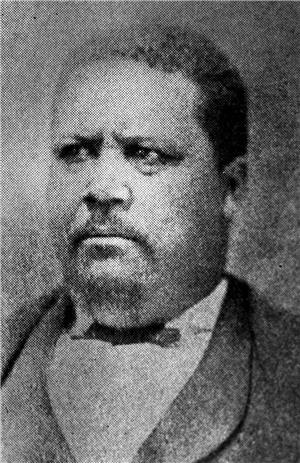William Grose, a Black pioneer, came to Seattle around 1860 and became a successful businessman. He acquired one of the largest land holdings in the city and was among those paying the most taxes.
Grose (often spelled Gross) was 15 when he left his home in Washington, D. C. to join the U.S. Navy. During his naval career he made expeditions to the Arctic and also to Japan. His adventures were just beginning. He then left the Navy for the gold mines of California, working in the Montezuma, Columbia, and Sonora Districts and in a number of other California mining camps.
William Grose helped form an underground railroad to aid slaves in escaping -- even going to Panama to persuade officials not to send escaped slaves back to the South. Back in California he assisted in making arrangements for the settlement of Black people in Victoria and on the Fraser River in British Columbia, Canada.
Later, serving as steward on the seagoing vessel, The Constitution, which carried mail between Victoria, B.C. and Olympia, Washington, he had a fortuitous meeting with Washington Governor Isaac Stevens (1818-1862). William Grose found and kept safely a watch belonging to the governor. The governor was so impressed with the man that he urged him to move to Washington Territory.
This Black Seattle pioneer was a big man in spirit and in body, weighing over 400 pounds and standing six feet four inches tall. He opened "Our House," a hotel and restaurant on Yesler Way, which became a popular stop for Seattle’s mostly white populace. He also became a good friend of the city’s prominent pioneer families.
Stories abound about his generosity, integrity, and honesty. One story, told by Attorney J. E. Hawkins, recounts how William Grose sold his hotel for $5,000. It later burned in the 1889 fire (the Great Fire, which on June 6, 1889 burned 30 downtown blocks to the ground). He looked up the new owner and returned the $5,000.
William Grose was the first Black person to buy property in East Madison. In 1882, he purchased a 12-acre tract from Henry Yesler for $1,000 in gold. His home, with slight alterations, still stands at 1733 24th Avenue.
He was a Mason, a trustee of First African Methodist Episcopal Church and a member of the Washington Pioneer Association. He died on July 27, 1898 in Seattle and is buried in Lake View Cemetery on Capitol Hill.

